With all of these moves towards digital delivery in entertainment, we thought it would be worthwhile understanding one of the key items in this process – how to get the digital content to UK households.
Steve Kennedy is an acknowledged expert in the telecoms and data networks field, so it was an obvious choice for us to ask him to write an overview of how other IP operators can compete with BT – by creating their own data network. To do this, they need to put their own equipment into the telephone exchanges that connect to peoples houses. That process is Local Loop Unbundling (LLU).
Over three parts, we’ll give you a full background in LLU in the UK.
The two previous pieces gave an overview of LLU and which companies are players in the UK; and LLU Penetration in the UK and the (un)Economics of it.
OpenLLU
The operators should have joined forces and built a single LLU infrastructure between them and then competed on service. This would have meant a second national network to compete with BT’s 21CN allowing operators to compete with BT on their own terms.
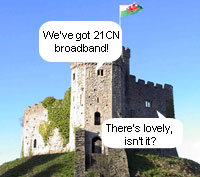 Also a single network would have meant it could go to many more of the 5,600 DLEs than the 1,200 everyone’s competing for at the moment.
Also a single network would have meant it could go to many more of the 5,600 DLEs than the 1,200 everyone’s competing for at the moment.
Unfortunately competition is so fierce between the telecoms operators it will never happen – much to their joint detriment.
Broadband Competition
BT is still the biggest player by far and they’ll try and increase market share when they launch their 21CN. Many operators are underestimating the effect of BT’s 21CN and how quickly BT can launch it.
When they do launch, they are trying to get back to a situation whereby everyone else once again becomes a BT reseller.
Virgin Media have around 4m customers, but they have little money for expansion and are likely to use LLU in future to provide broadband services. They’re stance is even worse now Sky have pulled their basic channels, which is likely to cause customers to migrate to Sky and if enough go, then Virgin Media may be in a sticky situation (the city won’t look kindly on a reduced customer base).
Wireless is the next big hope
Unfortunately there’s very little spectrum available for wireless broadband in the UK, though 2.5GHz is going to be made available for auction later this year, but it wont be cheap. It was reserved for 3G use, so there may be bids from 3G operators but it’s also bang in the middle of the frequencies WiMAX can use (BT have already said they’re interested in bidding for it).
Other companies who do have spectrum are: –
* PCCW (UK Broadband) who have a national 3.4GHz license.
* Pipex Wireless who have a national 3.6/4.2 GHz license.
It’s not clear whether the recent Pipex sale announcement covers the wireless side or not.
Future
Content will be key, access will just be a delivery channel for content and broadband will just be a commodity item (making it even more uneconomic to roll-out).
There’s going to be even more consolidation in the industry and BT will win either way (more LLU customers mean BT get more customers, if it fails, BT Wholesale get more customers).
BT will also dominate when they roll-out their 21CN, they want to be the Sky of fixed networks i.e. use them to deliver the content and they take a big chunk for the customer charge for doing so).
The future’s bright – but only for BT.
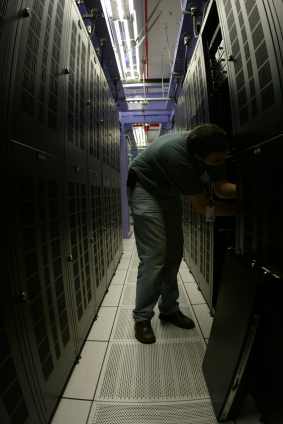 Since the operators all want to get into the same exchanges, there’s overcrowding and BT have to install new hostel space (the space where operators can put their own equipment into) which causes delays. It can take more than 6 months from when an operator puts an order in to being granted access to an exchange.
Since the operators all want to get into the same exchanges, there’s overcrowding and BT have to install new hostel space (the space where operators can put their own equipment into) which causes delays. It can take more than 6 months from when an operator puts an order in to being granted access to an exchange.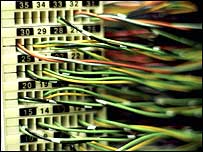 Unfortunately the economics of LLU only work if there’s a lot of customers per exchange i.e. massive scale.
Unfortunately the economics of LLU only work if there’s a lot of customers per exchange i.e. massive scale.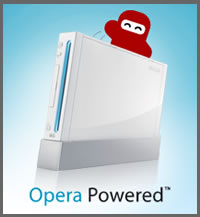 That all changes today when the full version becomes available for download through the Wii Shop Channel – the area on the console where additional applications and services are accessed.
That all changes today when the full version becomes available for download through the Wii Shop Channel – the area on the console where additional applications and services are accessed.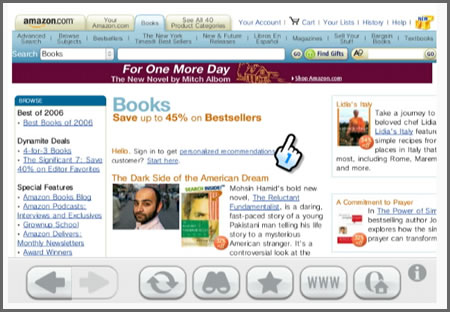
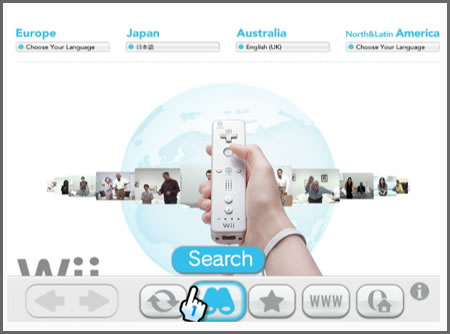
 It’s not just old content that will be available, but new productions from Paramount including DreamWorks titles, which will be among the latest films available.
It’s not just old content that will be available, but new productions from Paramount including DreamWorks titles, which will be among the latest films available.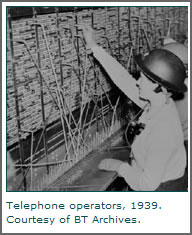 What is Local Loop Unbundling (LLU)?
What is Local Loop Unbundling (LLU)?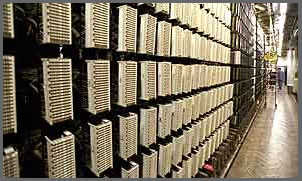 Any operator wanting to offer broadband (and possibly voice) has to put their equipment in these DLEs. However there is a cost to unbundling an exchange (around 100,000 including backhaul) which means operators are only targeting the most densely populated ones.
Any operator wanting to offer broadband (and possibly voice) has to put their equipment in these DLEs. However there is a cost to unbundling an exchange (around 100,000 including backhaul) which means operators are only targeting the most densely populated ones. We weren’t expecting to be so
We weren’t expecting to be so 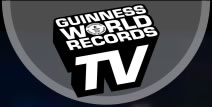 They’ve got 400 hours of it, so there’s plenty more to come.
They’ve got 400 hours of it, so there’s plenty more to come. Yvette Alberdingkthijm, EVP of content strategy and acquisition Joost took the pun-ing route of “We are delighted to have Guinness World Records on board and look forward to offering our viewers record breaking content.”
Yvette Alberdingkthijm, EVP of content strategy and acquisition Joost took the pun-ing route of “We are delighted to have Guinness World Records on board and look forward to offering our viewers record breaking content.”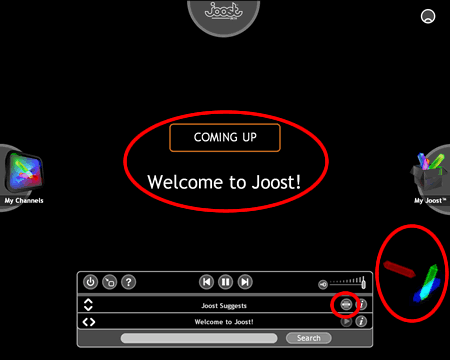
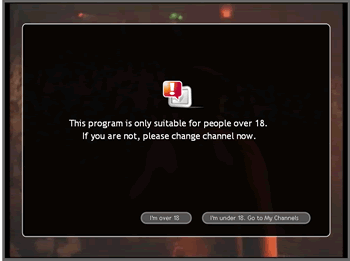 Those of you who have been watching the development of Joost, will notice that the adverts are getting just a little bit longer and more corporate. The latest addition appears to be an advert for IBM notebooks, while it is visually interesting (for the first viewing), it’s hardly cutting edge funk-ville.
Those of you who have been watching the development of Joost, will notice that the adverts are getting just a little bit longer and more corporate. The latest addition appears to be an advert for IBM notebooks, while it is visually interesting (for the first viewing), it’s hardly cutting edge funk-ville.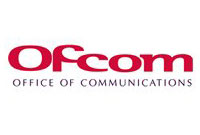 The report found that half of all UK adults live in broadband-connected households, up 11% from 12 months ago and a hefty seven times increase from 2002.
The report found that half of all UK adults live in broadband-connected households, up 11% from 12 months ago and a hefty seven times increase from 2002. Although just under half of users had no idea how fast they were connecting to the Internet, the report put the average headline connection speed at 3.8Mbps (up from 1.6Mbps in 2005).
Although just under half of users had no idea how fast they were connecting to the Internet, the report put the average headline connection speed at 3.8Mbps (up from 1.6Mbps in 2005).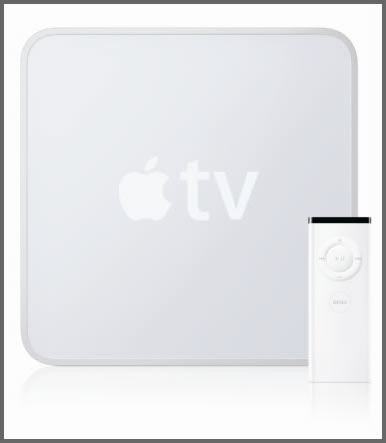 After weeks of speculation and one
After weeks of speculation and one 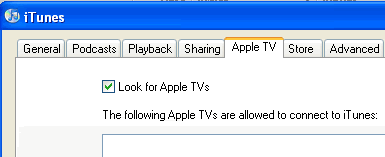
 The unit has a 40Gb hard drive that Apple says can “store up to 50 hours of video, 9,000 songs, 25,000 photos or a combination of each and is capable of delivering high-definition 720p output.”
The unit has a 40Gb hard drive that Apple says can “store up to 50 hours of video, 9,000 songs, 25,000 photos or a combination of each and is capable of delivering high-definition 720p output.”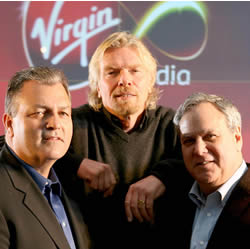 The upload speed will also be upped to 768Kbs, not exactly setting the uploading world alight, but better than a poke in the eye with a stick, non?
The upload speed will also be upped to 768Kbs, not exactly setting the uploading world alight, but better than a poke in the eye with a stick, non?